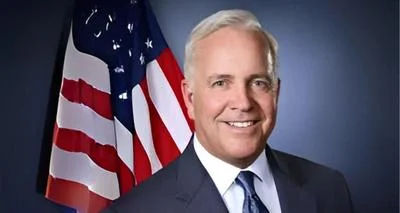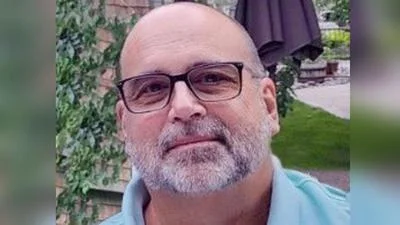Natalie A. Manley, Illinois State Representative from the 98th District | Official website
Natalie A. Manley, Illinois State Representative from the 98th District | Official website
According to the Illinois General Assembly site, the legislature summarized the bill's official text as follows: "Amends the Illinois Controlled Substances Act concerning the Prescription Monitoring Program. Provides that interstate data sharing agreements shall be mutual. Provides that the Department of Human Services shall only share data if the reciprocal state provides equal access to data of the reciprocating state to all authorized users, licensed health care entities, and application vendors regardless of their method of connection to the Prescription Monitoring Program for interstate data sharing. Effective immediately."
The following is our breakdown, based on the actual bill text, and may include interpretation to clarify its provisions.
In essence, this bill amends the Illinois Controlled Substances Act to enhance the regulations surrounding the Prescription Monitoring Program. It mandates that interstate data sharing agreements must be mutual, ensuring that data from the Illinois program is only shared if the reciprocal state provides equal access to its data. Entities accessing the program, such as Electronic Health Records Systems and pharmacies, are not required to use a specific system for integration but must meet all applicable security and privacy requirements. Additionally, the bill details that data from the program cannot be stored, cached, or sold, and requires written permission for data analysis. Non-compliance by integration vendors and connected systems can lead to penalties, including prohibition from serving as an integration entity. The bill takes effect immediately upon becoming law.
Natalie A. Manley has proposed one other bill since the beginning of the 104th session.
Manley graduated from Joliet Junior College with an AA and again in 1999 from the University of St. Francis with a BA.
Natalie A. Manley is currently serving in the Illinois State House, representing the state's 98th House District. She assumed office in 2013.
Bills in Illinois follow a multi-step legislative process, beginning with introduction in either the House or Senate, followed by committee review, floor debates, and votes in both chambers before reaching the governor for approval or veto. The General Assembly operates on a biennial schedule, and while typically thousands of bills are introduced each session, only a fraction successfully pass through the process to become law.
You can read more about bills and other measures here.
| Bill Number | Date Introduced | Short Description |
|---|---|---|
| HB1811 | 01/28/2025 | Amends the Illinois Controlled Substances Act concerning the Prescription Monitoring Program. Provides that interstate data sharing agreements shall be mutual. Provides that the Department of Human Services shall only share data if the reciprocal state provides equal access to data of the reciprocating state to all authorized users, licensed health care entities, and application vendors regardless of their method of connection to the Prescription Monitoring Program for interstate data sharing. Effective immediately. |
| HB1851 | 01/28/2025 | Amends the Illinois Emergency Management Agency Act. In provisions regarding the Access and Functional Needs Advisory Committee, provides that the Advisory Committee shall comply with all provisions of the Open Meetings Act except that the Advisory Committee is exempt from the provisions that specifically require a quorum of members of a public body to be physically present at the location of an open meeting. Allows Advisory Committee members to attend meetings of the Access and Functional Needs Advisory Committee remotely by video or audio conference with all attending members counting toward a quorum, provided there is at least one member in physical attendance at the publicly posted physical location of the meeting. |
| HB1287 | 01/13/2025 | Amends the Assisted Living and Shared Housing Act, the Nursing Home Care Act, the MC/DD Act, the ID/DD Community Care Act, and the Illinois Public Aid Code. Provides that the administrator of a facility or establishment under any of those Acts shall ensure that the facility or establishment has an automated external defibrillator and policies and procedures for the rendering of automated external defibrillation in the facility or establishment. Provides course requirements for persons certified to provide automated external defibrillation. Provides that a facility or establishment shall contract with or employ a physician who shall be the automated external defibrillation medical director for the facility or establishment and who shall oversee and coordinate specified requirements. |






 Alerts Sign-up
Alerts Sign-up